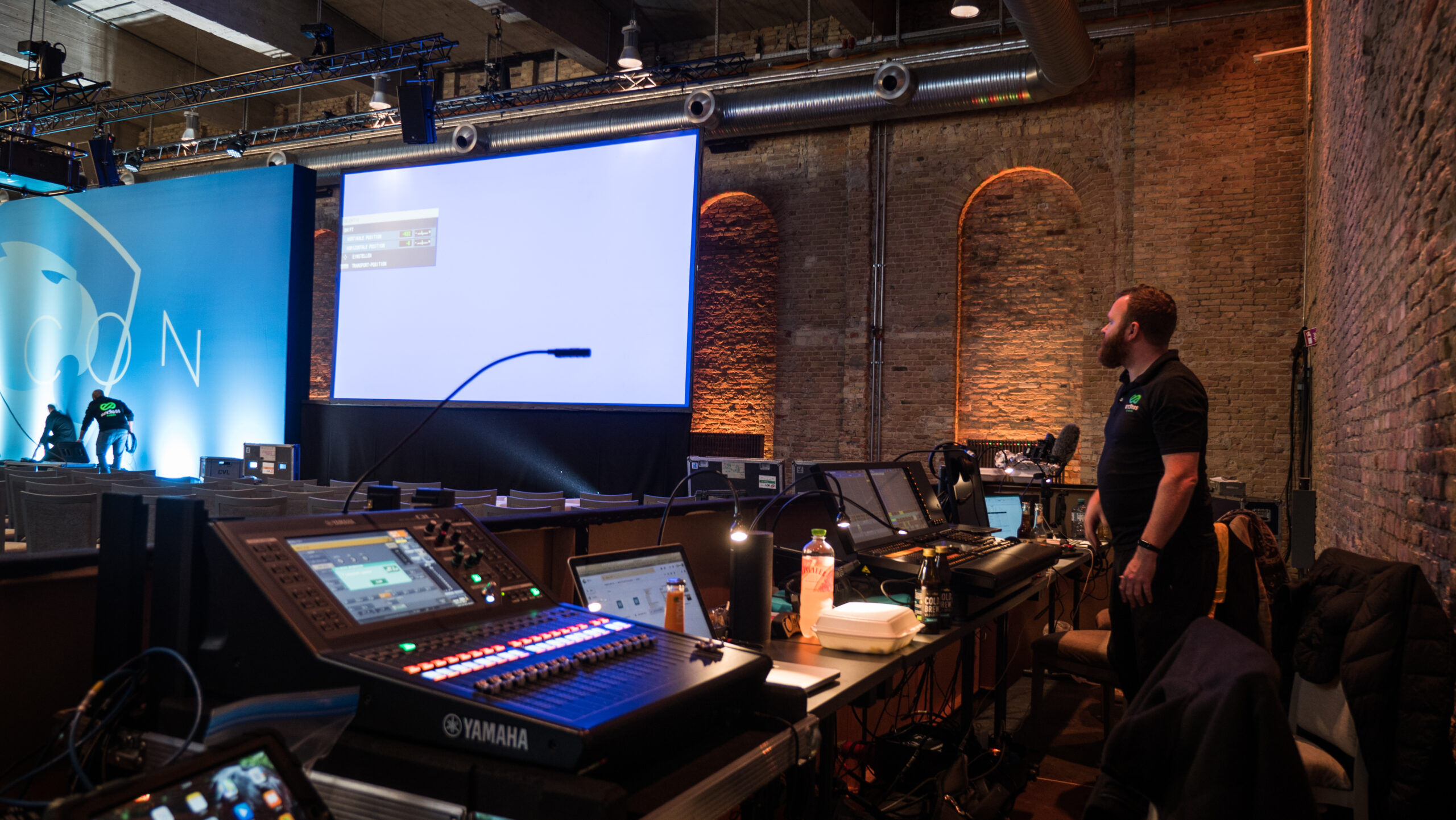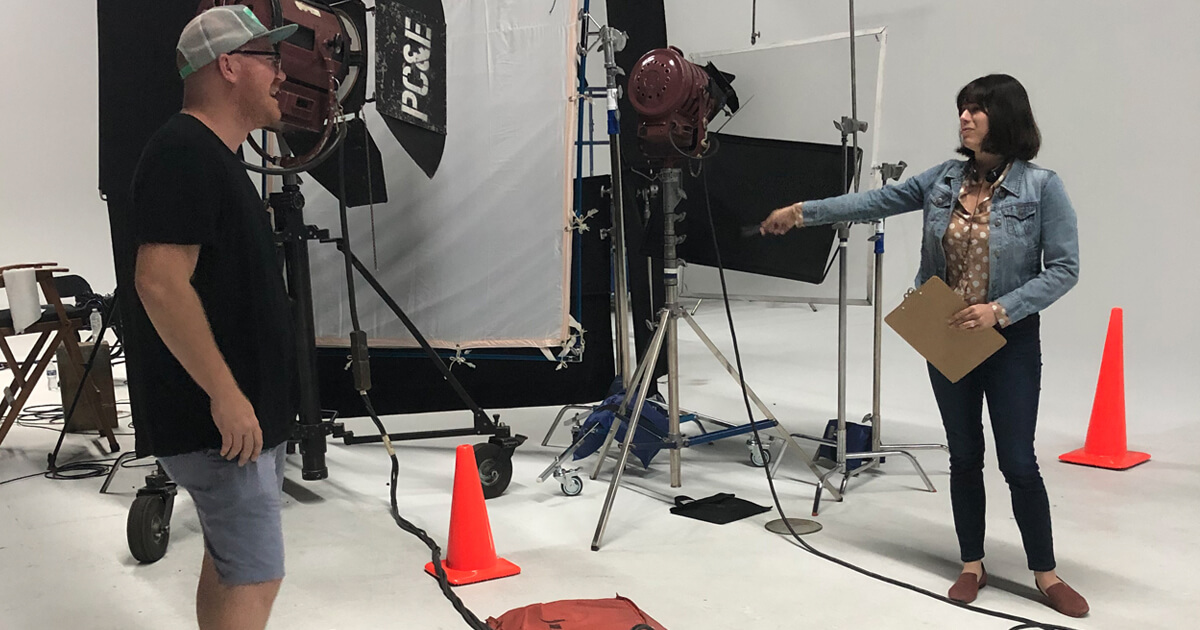Exactly How Event Production Functions: A Comprehensive Take A Look At the Refine
Event production is a facility and organized process that needs cautious planning and execution. It starts with developing clear purposes and recognizing the target market. Each step, from budgeting to place selection, plays a vital role in guaranteeing success. As the process unravels, different aspects have to line up effortlessly. Yet, the nuances of this elaborate procedure often go undetected. What are the essential phases that add to an unforgettable event?

The Preliminary Drawing Board
When beginning on event production, careful planning is necessary to ensure a successful result. The preliminary preparation phase offers as the structure for all succeeding initiatives. During this phase, event producers must define the event's purpose and goals clearly. Determining the target market helps tailor the experience and messaging, assuring relevance and engagement.Producers must also consider the event format, whether it be in-person, virtual, or hybrid, as this will certainly influence various logistical aspects. Selecting a suitable day and place is essential, as it influences access and availability.Furthermore, constructing a trusted group is essential for splitting responsibilities and streamlining interaction. Developing a timeline with turning points assurances all tasks are finished on time. This stage involves thorough research study, including identifying potential obstacles and creating techniques to mitigate threats. Eventually, a well-structured first planning phase sets the tone for an effective event production journey.

Budgeting and Source Allotment
In event production, reliable budgeting and resource appropriation are important for success - event production charlotte. Establishing economic parameters establishes the foundation for all succeeding decisions, while source distribution methods guarantee that every element of the event is properly sustained. With each other, these aspects aid maintain control over expenditures and enhance the use of readily available resources
Establishing Financial Parameters
Developing monetary criteria is essential to the success of any event production, as it establishes the foundation for effective budgeting and resource allocation. This procedure begins with specifying the total budget plan, which incorporates all elements of the event, consisting of location prices, event catering, and marketing. By identifying offered funds, event organizers can prioritize expenditures and assign sources as necessary. Furthermore, it is necessary to perform comprehensive marketing research to prepare for possible prices and identify funding sources, such as sponsorships or ticket sales. Establishing clear monetary criteria also aids in danger administration, permitting organizers to set aside contingency funds for unforeseen expenditures. Inevitably, a distinct spending plan works as a roadmap, assisting the event production group in the direction of attaining their goals while preserving monetary control.
Resource Distribution Approaches
Effective resource distribution strategies are crucial for making the most of the impact of an event while sticking to spending plan restraints. Effective event production requires a meticulous method to budgeting and resource allowance. Coordinators must focus on necessary aspects such as location, event catering, and modern technology, making certain that funds are designated to areas that enhance participant experience. An in-depth budget should lay out expected expenses and recognize areas for potential price savings, such as negotiating with suppliers or checking out sponsorship possibilities. Furthermore, tracking expenditures throughout the preparation process helps protect against overspending. By using tactical source distribution, event manufacturers can supply an unforgettable experience while maintaining monetary responsibility, ultimately adding to the general success of the event.
Place Choice and Logistics
Choosing the ideal venue is vital to the success of any event, as it establishes the phase for the overall experience. Location option involves reviewing various aspects, including capability, access, and area. Planners should take into consideration the target audience and the nature of the event, making certain the venue lines up with the event's goals.Logistics play a significant role in this procedure, entailing arrangements for seating, audiovisual devices, and providing services. A well-chosen place should promote smooth circulation for participants and team, enhancing engagement.Additionally, assessing potential places for services like auto parking, washrooms, and emergency situation departures is essential for safety and comfort. The timeline for securing the venue is likewise important, as preferred areas might reserve quickly - event production charlotte. Subsequently, comprehensive planning and prompt execution can eventually contribute to a seamless event experience, making location choice and logistics basic components of effective event production
Innovative Idea Growth
While the location sets the physical stage, creative idea advancement shapes the event's identification and narrative. This process starts with determining Your Domain Name the event's objective and target audience, enabling event manufacturers to create a compelling motif that reverberates with participants. Conceptualizing sessions commonly include diverse point of views, promoting cutting-edge concepts that straighten with the event's goals.Once a style is established, visual components such as color schemes, signs, and decor are designed to enhance the total atmosphere. Narration methods may also be incorporated to develop an appealing trip for participants, assuring an unforgettable experience. In addition, factors to consider relating to home entertainment, tasks, and interactive elements are lined up with the picked concept, strengthening the motif throughout the event.Ultimately, effective imaginative idea development warranties that every aspect of the event works cohesively, leaving an enduring impact on guests and satisfying the event's goals. This fundamental job lays the groundwork for succeeding planning and execution phases.
Working together With Vendors and Providers
Successful event production depends upon effective cooperation with suppliers and suppliers. Selecting trustworthy partners, negotiating agreements efficiently, and ensuring prompt shipments are important steps in this procedure. Each of these factors contributes substantially to the general success and smooth implementation of an occasion.
Selecting Reliable Partners
Just how can event planners assure a seamless production experience? Choosing reliable partners is essential in attaining this goal. Event coordinators need to carry out extensive research study to identify suppliers and distributors with a tested track document of excellence. This includes inspecting references, reviewing profiles, and reviewing client comments. Planners must prioritize partners that demonstrate expertise, prompt interaction, and a desire to team up. Structure strong relationships cultivates trust and enables quick analytic during the event. Furthermore, it is advantageous to choose local suppliers that understand the location and local logistics. Ultimately, a successful event hinges on the harmony between coordinators and their partners, making certain that every element of production runs efficiently and right here efficiently.
Discussing Contracts Successfully
Reliable negotiation of contracts is a crucial action in the partnership between event organizers and their suppliers and suppliers. This process includes clear interaction of assumptions, deliverables, and timelines. Organizers need to perform thorough research on market rates and sector criteria to develop a standard for negotiations. It is important to produce a collective ambience, urging open dialogue about terms, prices, and potential backups. Coordinators must additionally focus on recognizing the vendor's capabilities and constraints to align their needs effectively. Flexibility can cause equally helpful contracts, promoting long-lasting connections. Crafting distinct contracts that consist of particular efficiency metrics can help guarantee responsibility, inevitably leading to successful event implementation and satisfaction for all events entailed.
Guaranteeing Timely Shipments
Prompt distributions are vital for the smooth execution of any event, needing attentive partnership between planners and their suppliers and suppliers. Reliable communication is essential, as it assists develop clear assumptions regarding distribution routines, quantities, and particular requirements. Planners often produce detailed timelines to outline essential milestones, guaranteeing all events continue to be straightened throughout the procedure. Normal check-ins with suppliers can aid determine potential hold-ups early, enabling aggressive services. Additionally, building strong partnerships with reliable providers cultivates count on and liability, which can result in far better solution and prioritization. By prioritizing these collaborative initiatives, coordinators can reduce disruptions, thus boosting the overall efficiency of event production and making certain that all necessary materials and services arrive as prepared.
Advertising And Marketing and Promo Methods
While arranging an event, the success of advertising and marketing and promotion techniques can significantly affect participation and interaction. Effective approaches often consist of a combination of digital advertising and marketing, conventional marketing, and grassroots outreach. Utilizing social networks platforms permits real-time communication and targeted advertising and marketing, getting to particular demographics effectively. Email marketing campaigns can further engage possible attendees with customized material and reminders.Collaborations with influencers or sector leaders can also improve reputation and widen reach. Developing appealing material, such as videos or blogs, assists to produce buzz and sustain passion leading up to the event. Additionally, leveraging early-bird price cuts and special perks can incentivize ticket purchases.Promoting via traditional channels, such as posters or local media, remains appropriate, especially in community-focused occasions. An extensive technique that incorporates several techniques assurances maximum visibility and involvement, inevitably adding to the event's success and the creation of a memorable experience for participants.
On-Site Execution and Management
On-site implementation and management are essential parts that determine the general success of an occasion. Reliable control throughout the event ensures that all aspects line up with the planned program. Event managers supervise logistics, including vendor coordination, equipment arrangement, and visitor services. Keeping track of timelines and addressing any kind of unforeseen problems are basic for preserving a seamless experience.The personnel plays a significant duty, as qualified employees are accountable for numerous tasks such as registration, details circulation, and technical support. Communication amongst staff member is vital; it cultivates a collective environment and click for source makes it possible for quick resolution of challenges.Additionally, security procedures have to be complied with, protecting the health of all participants. Post-event evaluations are also component of on-site management, offering understandings for future enhancements. By focusing on these facets, event producers can create remarkable experiences that satisfy or exceed participant assumptions while attaining the event's objectives.
Regularly Asked Concerns
Just how Do I Select the Right Event Motif?
Choosing the best event motif entails taking into consideration the target market, event objective, and venue. Investigating present trends and gathering input from stakeholders can additionally motivate creative concepts that reverberate and create an unforgettable experience.

What Are Common Errors in Event Production?
Common mistakes in event production commonly include poor preparation, bad communication among employee, budget plan mismanagement, disregarding to take into consideration the audience's requirements, and falling short to conduct a complete post-event evaluation for future enhancements.
How Can I Measure Event Success?
To determine event success, one can examine guest contentment, involvement levels, spending plan adherence, and post-event feedback. Trick efficiency indications, such as ticket sales and social media sites interactions, likewise offer valuable understandings into total performance.
What Should I Do if It Rains on the Event Day?
In the event of moisten the day, the organizer ought to carry out contingency strategies, such as protecting tents or relocating tasks inside. Interaction with attendees regarding modifications is necessary to assure a smooth experience regardless of climate challenges.
Exactly How Can I Make Sure Guest Engagement During the Event?
